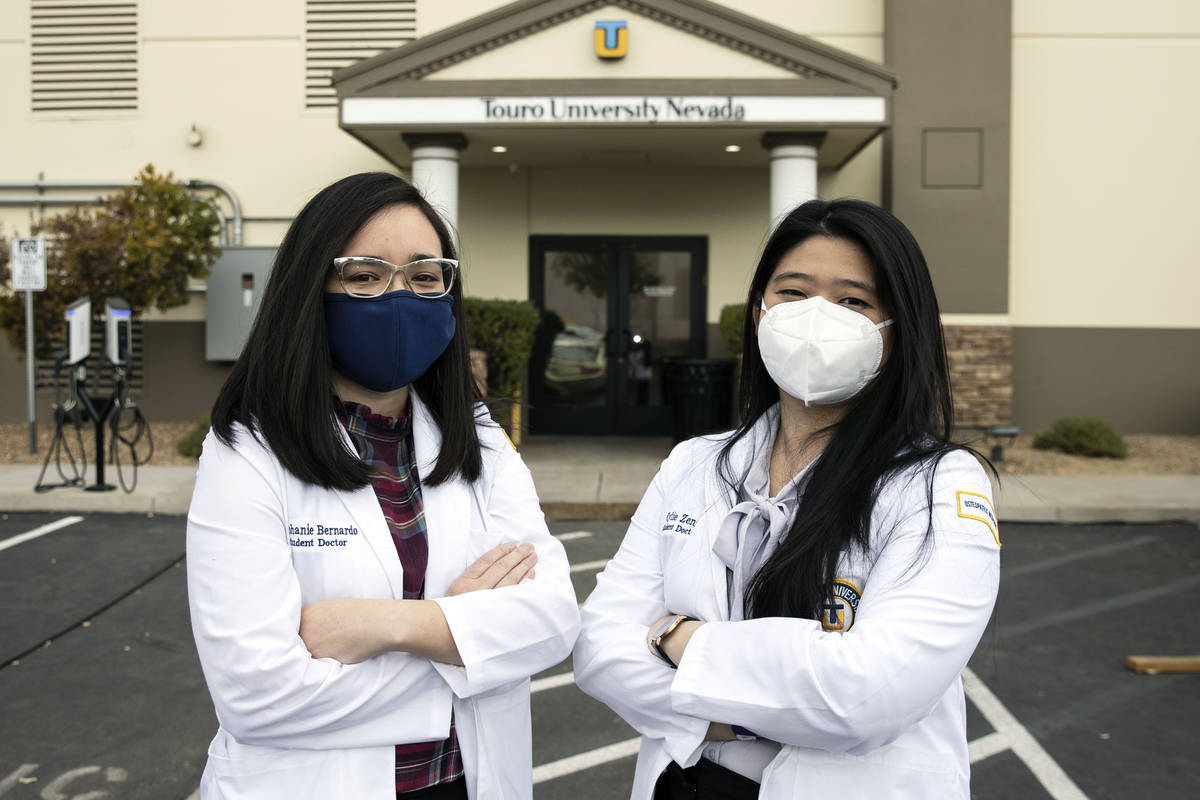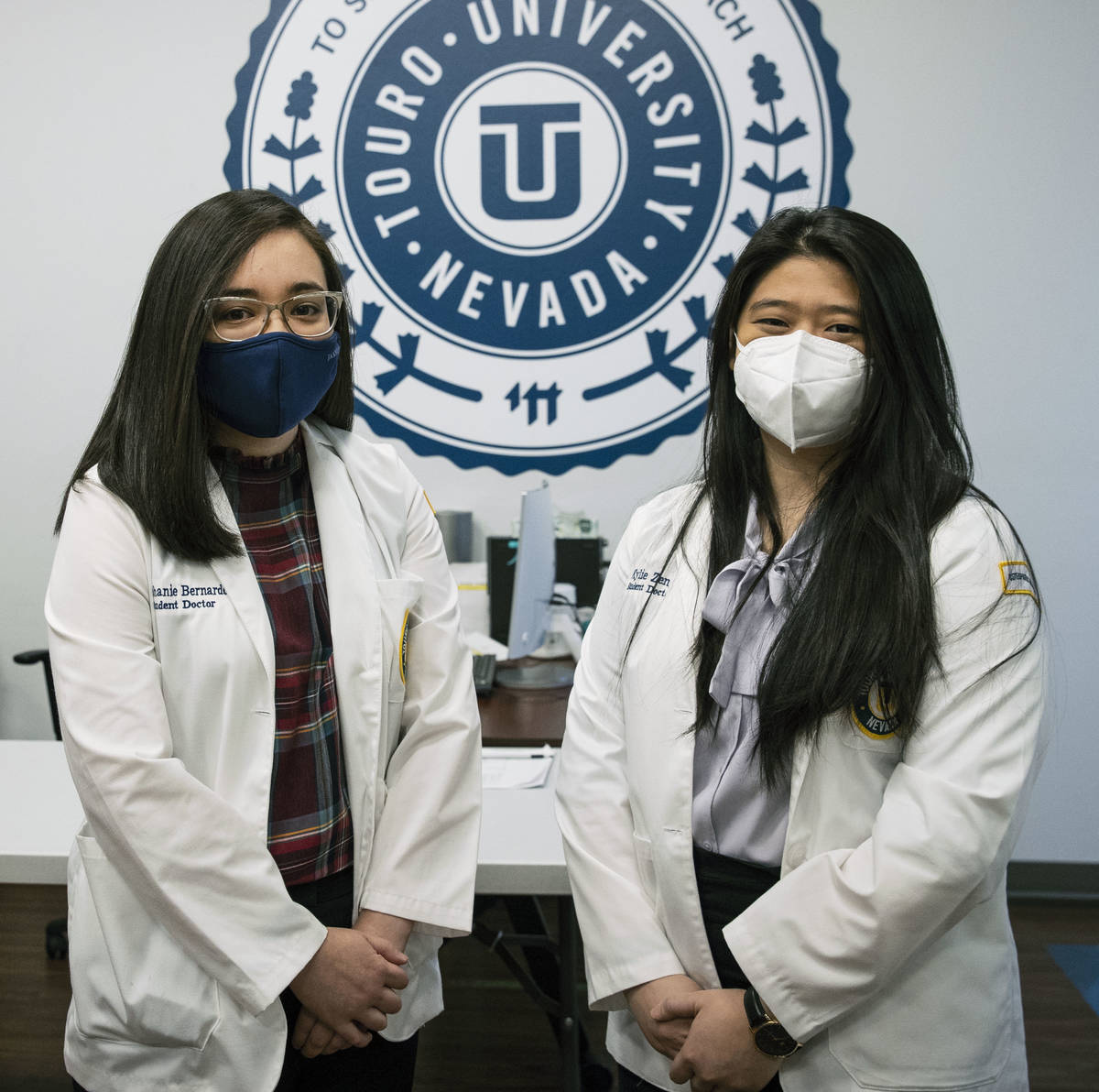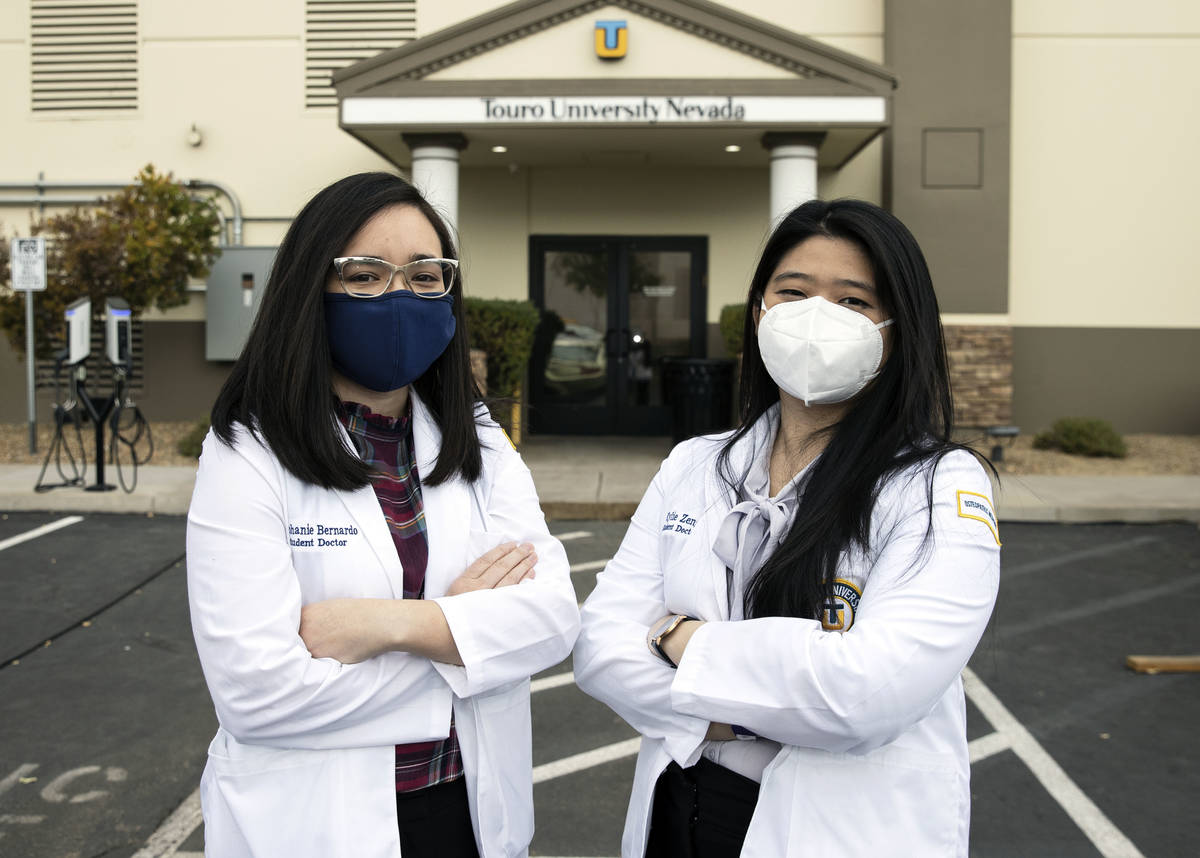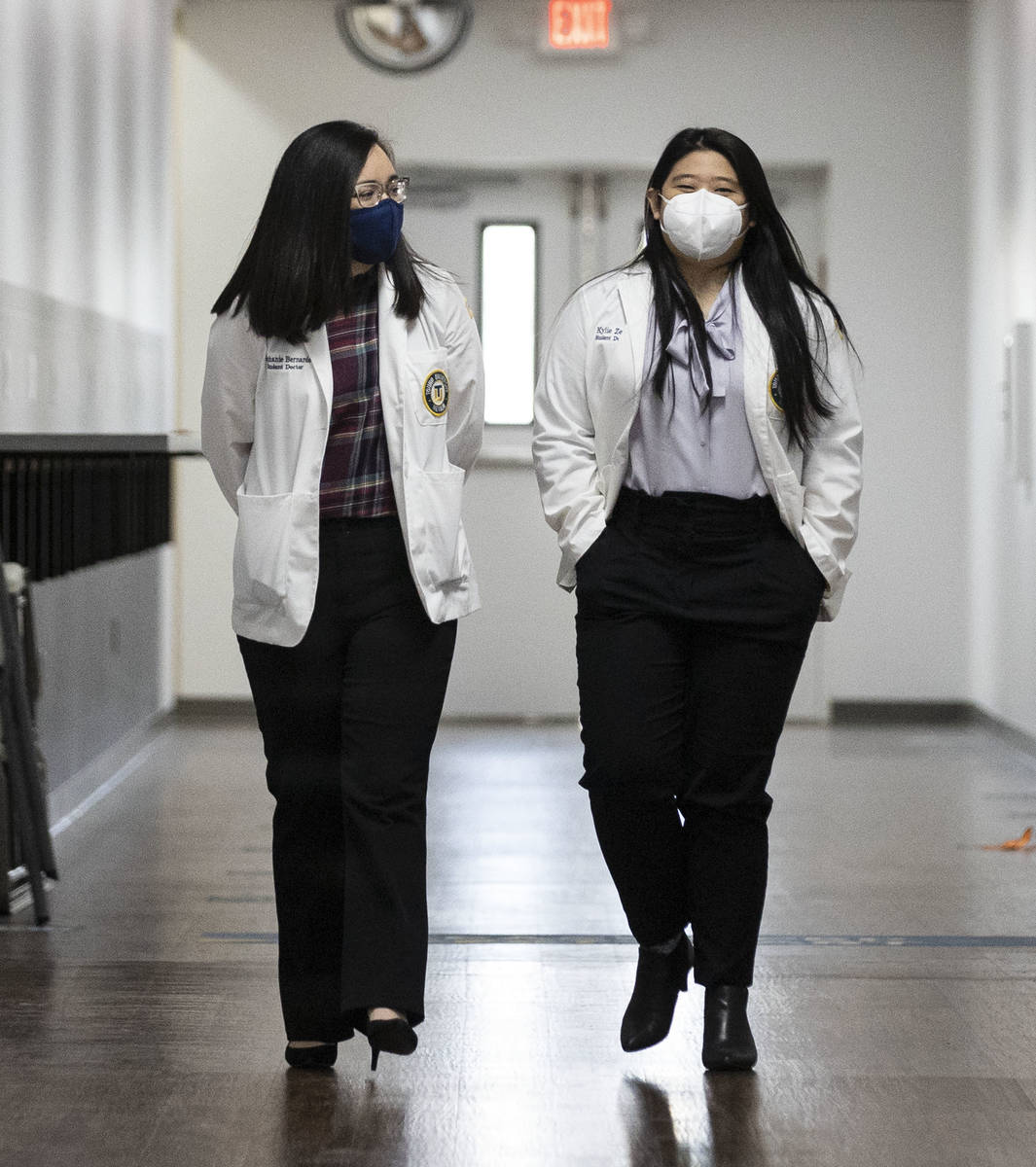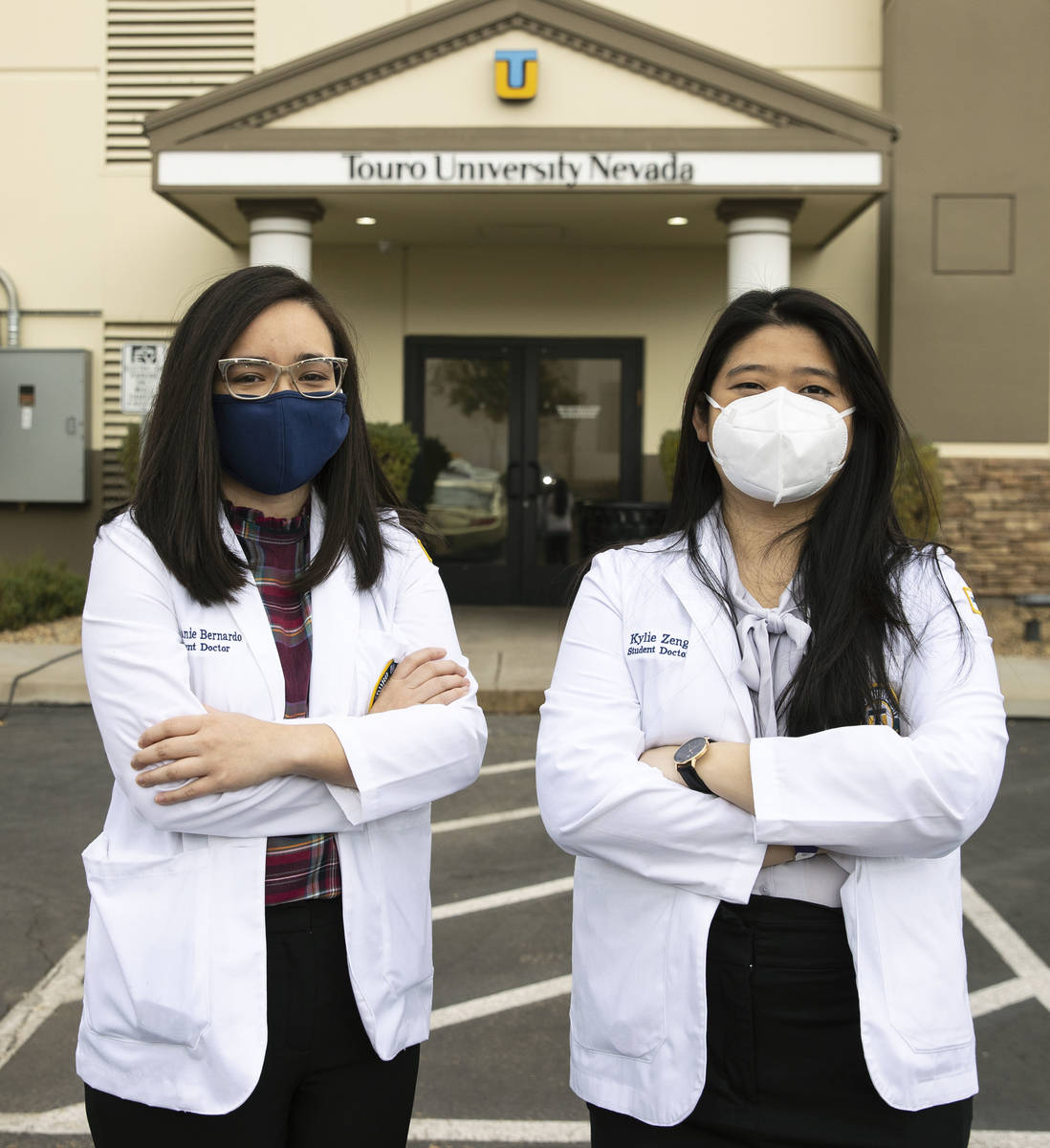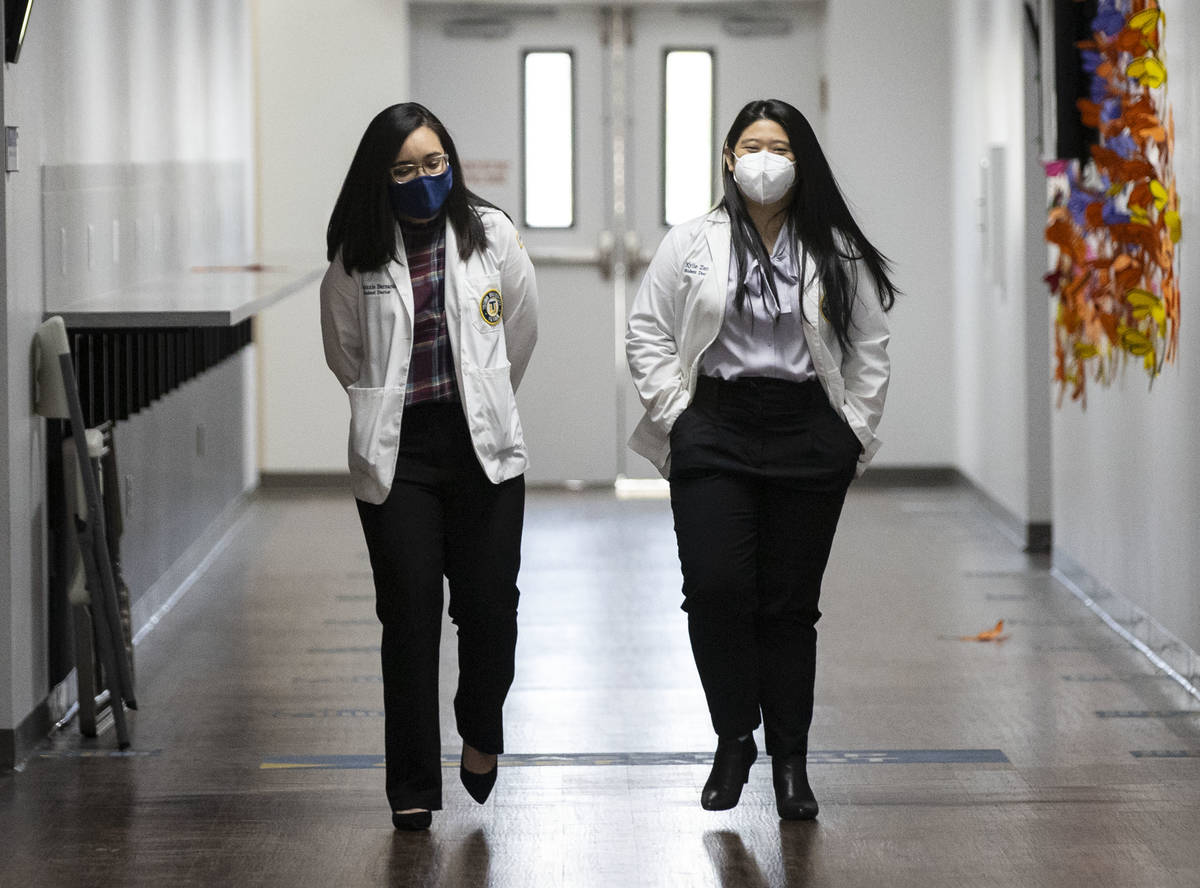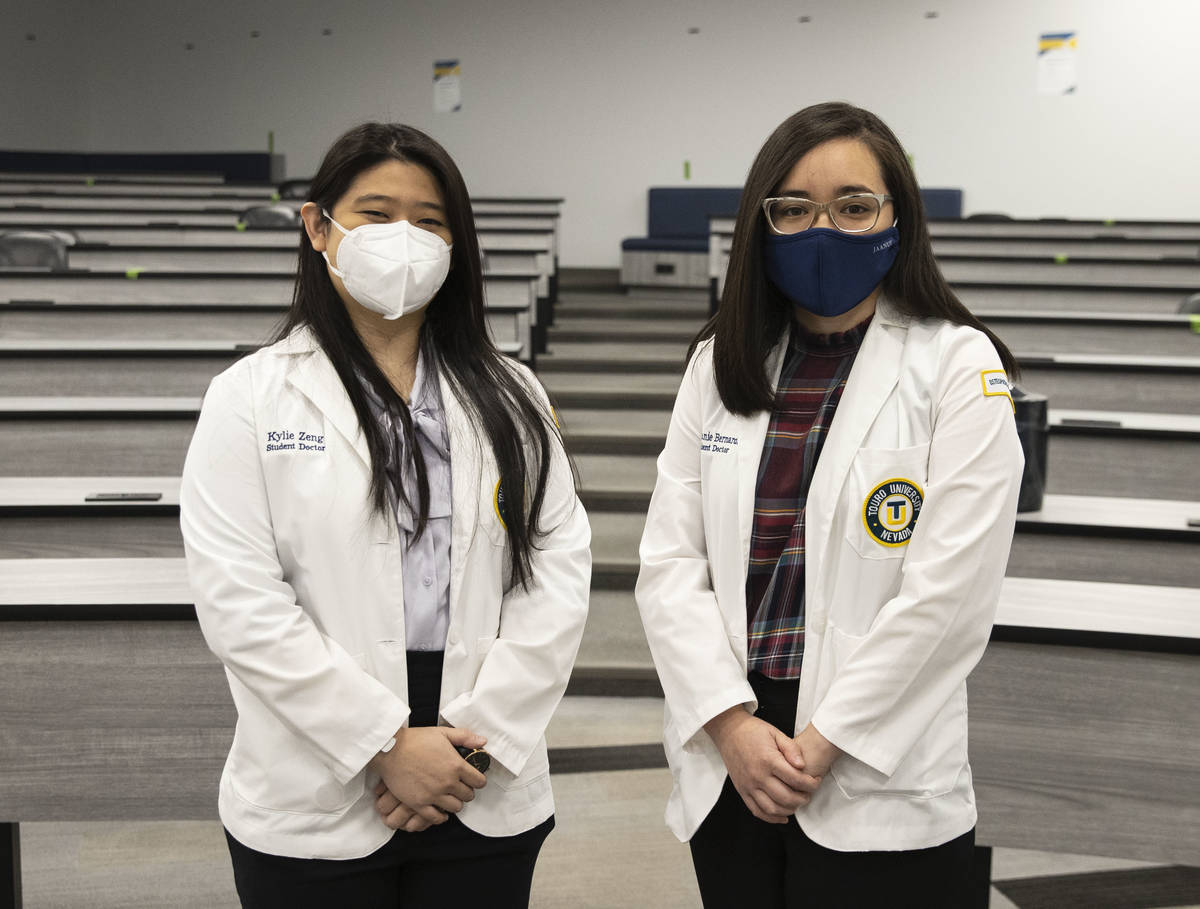3 countries deploy something we don’t in fight against COVID-19
Nevadans and visitors to the state can download a contact tracing app that quickly pinpoints and notifies those who may have been exposed to COVID-19 so that they can self-quarantine, preventing spread of the disease.
The COVID Trace app allows mobile phones to anonymously exchange random codes when users are within close proximity of one another, as determined by Bluetooth signals. No personal information is captured, no locations are logged, no identities are exposed. And no one is required to download it.
Adoption since the app’s introduction three months ago has been limited, with about 98,300 downloads as of Nov. 20, the equivalent of 3 percent of the state’s population. Thirty-seven people with the app who tested positive entered a code that allowed 32 others who had been in close proximity to receive notification that they were exposed to the virus.
Most contact tracing in the state continues to be done the old-fashioned way, with public health authorities contacting each person who tests positive for COVID-19. Each of these people then tries to remember with whom they had been in close contact, and then these contacts are notified. Time is lost and some contacts missed.
But what might the impact be on the COVID crisis if the use of contact-tracing apps as well as other digital tools were widespread?
Look no further than Taiwan, Singapore and South Korea, say two medical students and their professor at Touro University Nevada in Henderson.
Their research suggests that the widespread use of digital tools for contact tracing and quarantining is a major reason why these countries have had some of the lowest rates of COVID-19 in the world.
“We noticed that, especially in the media, there was a lot of talk about how well certain countries were doing,” said medical student Kylie Zeng, who conducted the research with fellow student Stephanie Bernardo in conjunction with emeritus professor Dr. Weldon Havins.
“And we were just kind of curious about how they got there. So we looked at Taiwan, Singapore and South Korea, and we noticed that they were using a lot of digital tools,” she said.
Use of digital tools
They found that Taiwan, for example, uses mobile phone-based “electronic fencing” to monitor compliance with self-quarantining. In South Korea, travelers and residents returning to the country are required to install a GPS-tracking device to monitor quarantining.
In Taiwan, the government uses mobile phone technology to monitor COVID-19-positive individuals and their close contacts who are under quarantine orders. South Korea uses a data platform that allows contact tracers “to identify transmission routes of infected individuals and cluster outbreaks via GPS location, closed-circuit television (CCTV), credit card transactions, and use of medical facilities and pharmacies,” according to their research.
Singapore uses a digital check-in system at entry points to public areas to assist in identifying close contacts of people testing positive for the virus.
The students say that this digital approach, along with low-tech methods such as early, widespread wearing of masks, reaped huge benefits. As of early September, South Korea, Singapore and Taiwan had only 0.65, 0.46 and 0.03 deaths from COVID-19 per 100,000 people. In contrast, Spain, Italy and the U.S., where digital tools are not widely used, had 63, 59 and 57 deaths per 100,000 people.
The giant catch is that use of most of these digital tools in the three Asian countries is mandatory and privacy is not protected. An exception is the use of a contact-tracing app in Singapore, a program that while voluntary has been unsuccessful.
The citizens in these Asian countries may be more willing to make the trade-off of civil liberties for safety because of past encounters with other coronaviruses, the students said. The countries faced the SARS epidemic in 2003, and South Korea had an outbreak of MERS in 2015.
Privacy concerns
So convinced are the students of the benefits that they would like to see a similar approach considered in the U.S., despite the concerns of privacy advocates and others about governmental intrusion. In the U.S., fewer that 20 states are using even a voluntary, privacy-oriented contact-tracing app.
“I think we have to be very transparent with the public as to how these digital tools can be used and how it can benefit the nation as a whole,” Bernardo said.
Her professor was more blunt. “I think the question is, how many more Americans are we going to watch die before we do something more definitive?” Havins said. “What we’re doing now doesn’t approach what these three countries have done, and they’re democracies.”
Adoption of these methods would require a “sea change” in this country, acknowledged Dr. Joe Hardy, associate dean of clinical education at Touro.
It would amount to a “huge difference in the mentality of ‘don’t tread on me, I am free’ and all of those things that we grew up with in this nation,” he said. “So, yes, it’s a hill to climb to suggest that everybody’s going to be traced. And it’s a hill to climb to say that everybody’s going to do what they’re supposed to do in self-isolation, quarantining and whatever.
“And so I would be surprised if this overarching, all-encompassing, all-inclusive suggestion happens without fiery darts of debate.”
To learn more about how the Nevada COVID Trace app works, visit https://nvhealthresponse.nv.gov/covidtrace/how-the-app-works.html.
Contact Mary Hynes at mhynes@reviewjournal.com or 702-383-0336. Follow @MaryHynes1 on Twitter.



